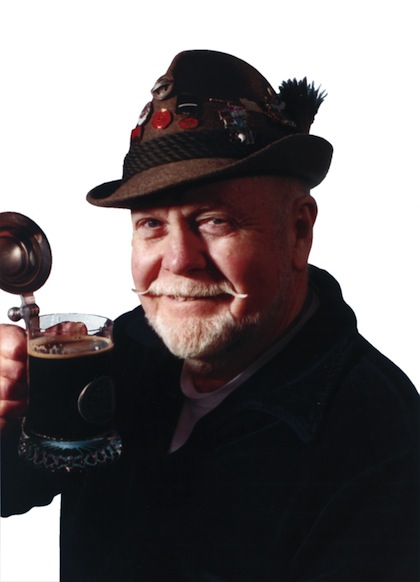Periodically, my daily newspaper, the Oregonian, presents another babblement on the drinking problems of our young people, often followed by a vicious editorial. It seems these troublesome youths drink alcoholic beverages, especially beer, with entirely too much gusto. These young hooligans carry on from a right early age, some as young as 12. And it’s all our fault—we adults, I mean. It’s really OUR fault. If we adults just did the right thing for them, the problem would all go away, but meanwhile, let’s have a big increase in beer taxes.
Our society seems totally out of touch with reality regarding youthful drinking.

The Oregonian reporter, Andy Dorkin, in a sterling example of “fair and balanced” (TM) journalism, was fervent about a 300-page government report, Reducing Underage Drinking: A Collective Responsibility, generated for Congress by a 12-member panel from the Institutes of Health, out of the National Academy of Sciences. It was led by law professor Richard Bonnie of the University of Virginia, who admitted that the panel had not considered proposals to lower the drinking age.
I’ve no doubt whatsoever that the United States has more problems with young folks drinking than any other developed country. Start with the fact that only the USA, Chile, Egypt, Honduras, Russia and Samoa have laws against drinking under the age of 21. Japan comes on at 20, and South Korea, along with 10 of 13 Canadian provinces and territories, hold at 19. All other countries on the planet either have no laws at all about minimum drinking ages, or they set that at 18 or 16. The latter group includes only Austria, Belgium, France, Germany, Italy, and the Netherlands; but, of course, they are “old Europe,” and not as civilized as ourselves, Chile, Egypt, Honduras, Russia and Samoa. In fairness, I should note that only 31 of our 50 states actually prohibit anyone under 21 from drinking, although none allows the purchase of alcohol under the age of 21.
Alcohol Abuse is Real
I must admit that we really do have an alcohol problem with our young people and their drinking habits. The above-quoted government report is quite correct about alcohol abuse among our young people. It is shaping up to become the major social problem of this decade. According to the Oregon Office of Alcohol and Drug Abuse, some 8 percent of sixth graders, 26 percent of eighth graders, and 42 percent of 11th graders had used alcohol in the previous 30 days.
Oregon seems to be a little ahead of the national averages in this field. In February 2001, an Oregon girl from Corvallis, a college town, drank seven consecutive, and probably double, shots of vodka before she died on her 14th birthday.
Get in Touch with Reality
These are terrible statistics for my state and our nation, but our society seems totally out of touch with reality regarding youthful drinking. We have been dealing with our young folks on a “just say no” and “zero tolerance” level for about 10 years now.
On the other hand, the people of Belgium, France, Germany, Italy, and the Netherlands handle things differently. In Belgium a couple of years ago, according to Britain’s Guardian newspaper, a Flemish beer club set up a pilot program to provide low alcohol (under 2.5 percent alcohol by volume) tafelbier (table beer) to school children between ages 3 and 15. This was to counter high calorie soft drinks and the resulting risk of obesity. I have the Nederlandsch text of that episode, and they didn’t worry a bit about their children becoming alcoholics.
How could this be? Well, in those “old Europe” civilizations, the youth, and their families, drink beer and wine with dinner. It’s not really worrisome for them.
Among American adults, we have alcohol abuse by something like 10 percent of our total population although some 70 percent of us drink moderately. If our young people were educated to manage social drinking, then we could probably expect something like 10 percent to cause trouble. Even so, that’s a lot better than what we have now, but we could be sure that 70 percent of them would follow their elders and become moderate drinkers.









